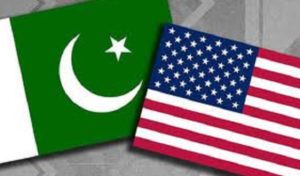
Since the Donald Trump came to power, there are fewer policy clues but from his inauguration speech to anti-globalization, anti- internationalism broadly pointed at its nationalistic stance. In all probabilities, Trump’s priorities are inclined towards trade, immigration, terrorism, the Iran nuclear deal and relations with Israel. While the rest of foreign policy including geopolitics or strategic issues are likely to have institutional continuity. Now, what are the determining factors of US-Pakistan relations? It is pertinent to discuss here that Pak-US relations primarily depend upon the Trump’s approach towards the war on terrorism and towards Afghanistan. The last Obama Administration lost its way dealing with Pakistan while investing too much in India by legacy and to counter China which gave significant factor in US-Pak relations. The other element is that Obama was in urgency in paving the ways for stability in Afghanistan which led too much pressure on Pakistan; consequently, Pak- US relations remained strained on three sides.
Contemporary international political scenario, Trump has no such political baggage and will be assisted by a secretary of Defense who seems to be a thoughtful and well-aware military leader having a history of wars and conflicts. Here question arises that will allow a continuation of Obama’s policy work? In my understanding, it will not be easy for the US to think up a new sound policy in immediate future because of its engagement in the region revolving around two categorized ideas- China and war on terrorism in which Afghanistan is a crucial part. For first idea the US needs India, and for the second it needs Pakistan. With the new developments in China and Pakistan on China-Pakistan Economic Corridor and other different joint ventures, both India and US are on the same ground to oppose these developments in the region containing China. I must say that Pakistan’s priority to do joint ventures with China or cooperative strategic partnership, in particular, is to counterbalance India, not against the US. So the US may not undermine or demoralize Pakistan in prioritizing its bilateral relations with India at the cost of China-Pak relations at the strategic level. This makes its Pak-US relations very complicated and needed to be reconciled. Along these China-Pakistan relations, the unresolved conflict in Afghanistan, looming threats from ISI, continued militancy in Pakistan and Afghanistan, revolutionary Iran and resurging Russia Pakistan is a factor in all this needed to be dealt somewhat not discriminately. According to media reports and quoting US officials, said that the potential of Trump Administration responses being discussed includes expanding US drone attacks, redirecting or withholding some aid to Pakistan eventually may downgrade Pakistan’s status as a major non-NATO ally. Some US official and experts on the region scoff at the title “Pakistan is not an ally- it’s not North Korea or Iran. But it’s not an ally”, said Bruce Riedel, a Pakistan expert at the Brookings Institution. By this title would be seen by Pakistan as a major blow. Lisa Curtis, Senior Director for South and Central Asia at the National Security Council co-authored a report with Husain Haqqani, Pakistan’s former ambassador to Washington in which they recommended the Trump Administration warn Pakistan, the status could be revoked in six months, according to the February report “Thinking of Pakistan as an ally will continue to create problems for the next administration as it did for the last one”. But it is unclear how seriously the current administration was considering the proposal.
Since the Indo-US nuclear deal in 2008, the Indo-US strategic partnership is growing. Ahead of PM Narendra Modi’ visit to the US on June 26, 2017, is yet to be seen as how US current administration takes PM Modi’s concerns against Pakistan as According to times of India that Modi would raise terrorism emanating from Pakistan and US aid to Islamabad. This will be their first meeting, though they have spoken at least three times on Phone starting with the morning after Trump’s stunning election victory in November 2016. It is reported that top issues for both sides are likely to be discussed counter-terrorism, followed by H-1B visa system for India and trade for the US. The ongoing US review of its policy on Afghanistan is expected to figure out prominently, and India will be keen know if the American is staying there, and for how long?
In a nutshell, anti-Pakistan sentiments seem to be hoisted in this Modi-Trump talk with a blame game of Afghanistan onto Pakistan over a devastating May 31st truck bomb that killed more than 80 people and wounded 460 in Afghanistan’s capital, Kabul. Islamabad assertively denied Pakistan’s involvement. Though these allegations are not anything new and based on traditional rivalry, the current scenario which is witnessing the successes of the development projects such as CPEC bringing the prosperity and peace in Pakistan is not favoring both India and US and they are collectively expressing their opposition. The strategic partnership with both US and India plays a very infertile role in the whole stability and peace in South Asia’s geostrategic fulcrum. Pakistan compelled to seek other strategic partners such as China and Russia but not at the cost of Pak-US relations whereas to counter India’s ambitious regional role with the assistance of US. Critically analyzing one can say that India-US relations will be flourishing during Trump whereas Pak-US relations may remain strained to a certain extent yet to be seen.
Where on the one hand the balance of power is tilted towards India by growing Indo-US strategic partnership with their new agreement on Logistics Exchange Memorandum of Agreement (LEMOA), on other hand China-Russia-Pakistan are trying to counterbalance India-US influencing roles in South Asia’s geostrategic fulcrum.
